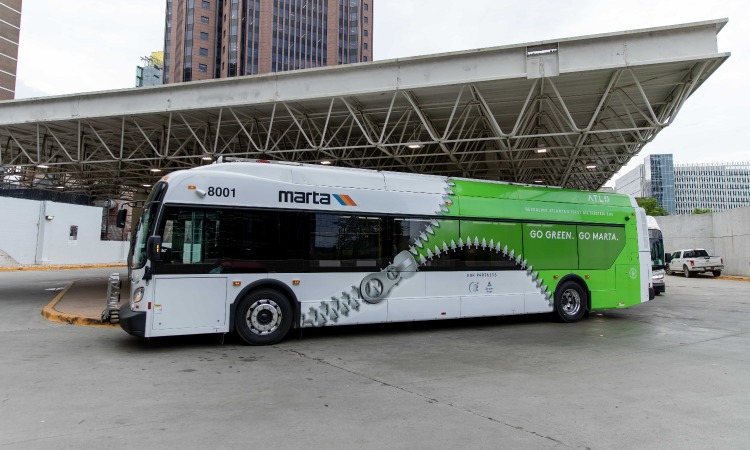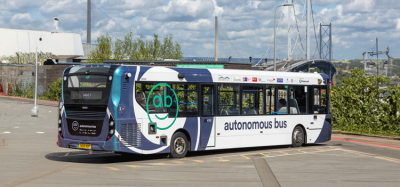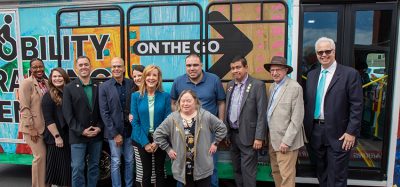MARTA advances capital projects and pre-COVID services with new budget
- Like
- Digg
- Del
- Tumblr
- VKontakte
- Buffer
- Love This
- Odnoklassniki
- Meneame
- Blogger
- Amazon
- Yahoo Mail
- Gmail
- AOL
- Newsvine
- HackerNews
- Evernote
- MySpace
- Mail.ru
- Viadeo
- Line
- Comments
- Yummly
- SMS
- Viber
- Telegram
- Subscribe
- Skype
- Facebook Messenger
- Kakao
- LiveJournal
- Yammer
- Edgar
- Fintel
- Mix
- Instapaper
- Copy Link
Posted: 15 June 2022 | Intelligent Transport | No comments yet
MARTA aims to use the $1.3 billion budget to enhance public transit services for commuters in Metro Atlanta, with a key focus on improving the customer experience and renovating the rail network.


Credit: Metropolitan Atlanta Rapid Transit Authority
The Metropolitan Atlanta Rapid Transit Authority (MARTA) has announced that its Board of Directors have adopted the authority’s Fiscal Year 2023 Operating and Capital Budgets. The $1.3 billion budget includes $587.6 million in operating funds and $717 million for capital programming.
MARTA continues to show fiscal responsibility, balancing the budget for an eleventh straight year without a fare increase and on the heels of unprecedented fare revenue losses due to the pandemic. MARTA relies more heavily on sales tax revenue, and with those revenues experiencing strong growth, combined with the last draw down from the federal COVID relief money, the authority is now well-positioned to resume pre-COVID operation levels and advance its capital improvement programme.
“The biggest problem facing the transit industry right now, and frankly, most industries, is a shortage of workers. We are using every hiring platform and tool at our disposal to hire and train operators as ridership recovers,” said MARTA Interim General Manager and CEO Collie Greenwood. “We are aggressively recruiting employees, holding frequent job fairs and offering signing bonuses in order to stay competitive. As people return to MARTA, we must be able to meet the service demand.”
Ridership demand has increased, with rail slightly outperforming bus. Recently, climbing fuel prices have presented an opportunity to gain customers without impacting MARTA’s bottom line. A bus uses the same amount of fuel whether carrying two people or 20, and MARTA hedges a portion of its fuel costs to protect against price spikes. Electricity-powered trains and fully electric buses, the first of which were placed into service in spring 2022, are immune.
MARTA Reach: Keeping customers connected to public transport
In addition, MARTA is also exploring other ways to gain ridership including a comprehensive redesign of its bus network to ensure service meets the changing demographics and development of the service area, and by launching an on-demand transit pilot programme to connect those in areas underserved by transit to the larger MARTA system.
MARTA’s Capital Improvement Program is advancing rapidly and includes State of Good Repair (SOGR) projects focused on improving the customer experience, such as ongoing track replacement to enhance the safety of the rail system and reducing delays caused by aging equipment.
The capital budget includes over $70 million for the multi-year Station Rehabilitation Program with Five Points and Bankhead slated for train platform renovation and extension respectively. Close to $40 million is budgeted for the procurement of new railcars, the interior and exterior looks of which debuted in January 2022. The trains are the largest single capital investment ever made at MARTA at over $600 million and the first railcar is set to arrive in metro Atlanta in 2025.
“While this has been a difficult year for the MARTA family, we remain focused on our customers and taking care of the system we have today while developing an equitable, more connected transit system of the future, thoughtfully and with fiscal responsibility,” said MARTA Board Chair Rita Scott.
In a continued commitment to improving customer service, MARTA is also budgeting $9 million this fiscal year for the SMART Restroom Program. In order to save money in the long run, the authority has bought all the parts and equipment for the programme at current prices and will use them to upgrade restrooms systemwide over the next few years, making them cleaner, safer and smarter – alerting station maintainers when supplies are low or the space needs attention.
If you liked this, you may also be interested in:
▶ BART Board approves two-year budget focused on rider experience
▶ WMCA announces £88 million plan to transform bus services across West Midlands
Related topics
Accessibility, Air Quality, Alternative Power, COVID-19, Mobility Services, On-Demand Transport, Public Transport, Sustainable Urban Transport
Related modes
Bus & Coach, Rail
Related cities
Atlanta
Related countries
United States
Related organisations
Metropolitan Atlanta Rapid Transit Authority (MARTA)
Related people
Collie Greenwood








